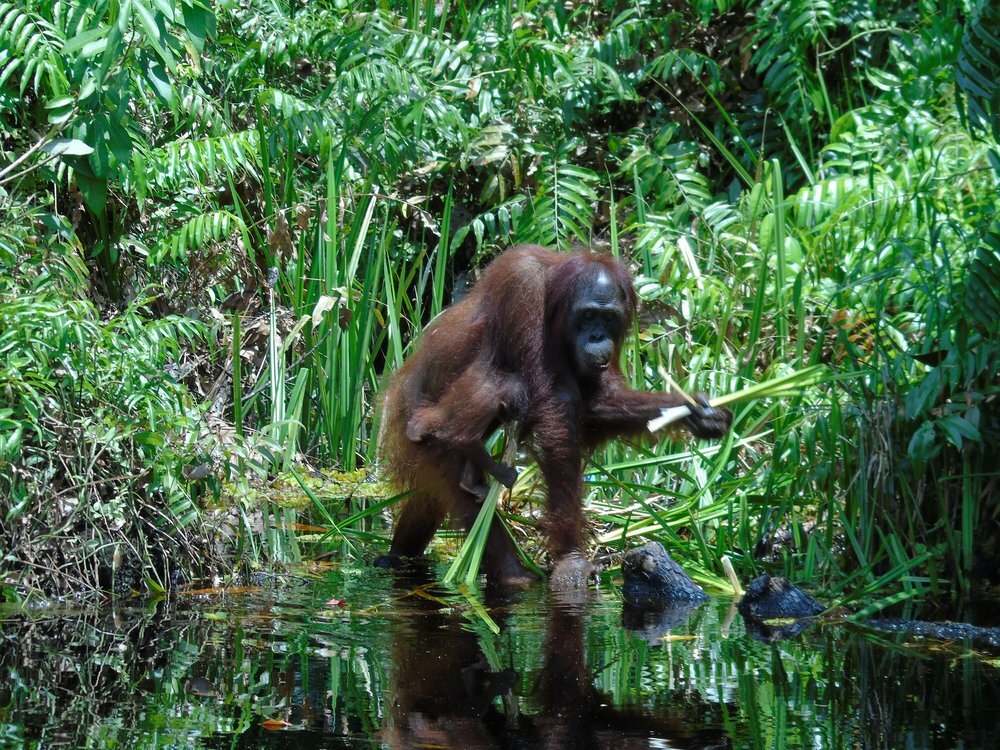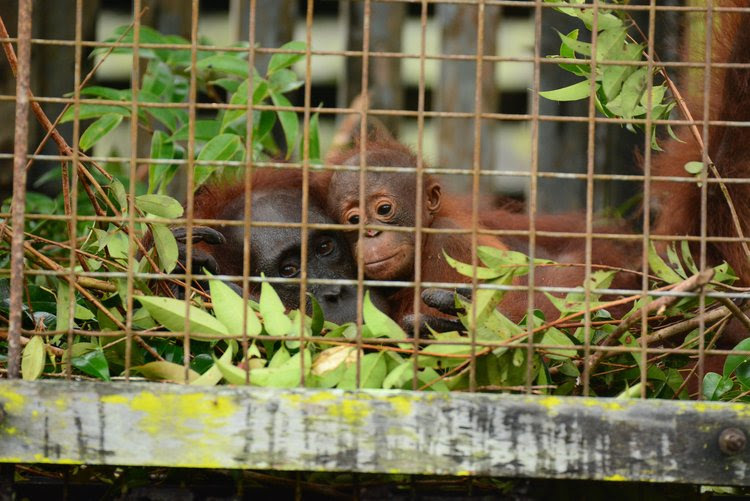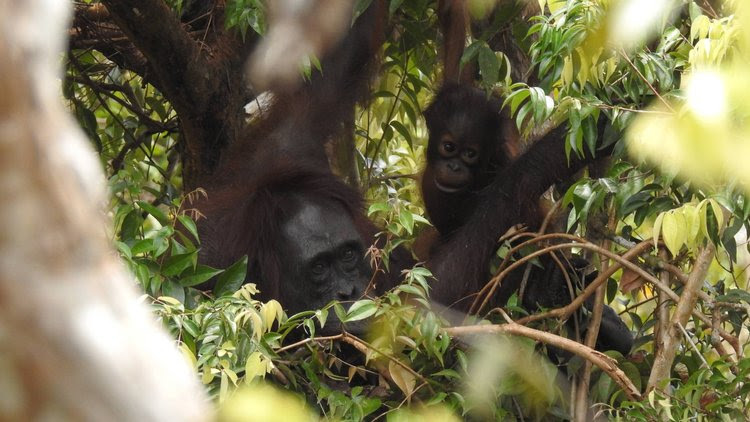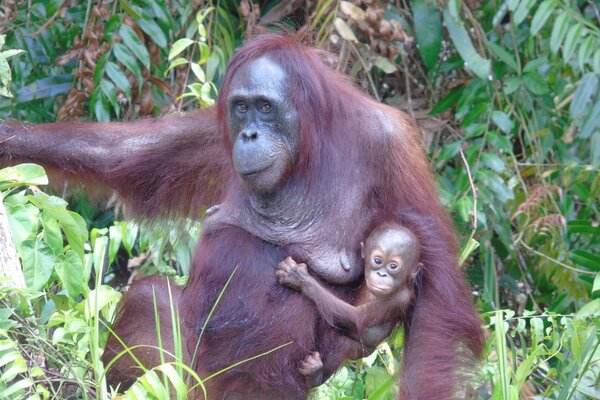
Orangutan mothers are devoted - they spend up to eight years raising their infant on a one-to-one basis and the infant is totally dependent on them during this time, learning the skills they need to survive in the forest.
Queen was one of the first female orangutans to be introduced to the Lamandau Wildlife Reserve in Indonesian Borneo in 2003 as a six-year-old. She has a wealth of experience as a mother, raising three daughters since her release to the wild and then giving birth to a son, Quentin, in summer 2020.
Researchers love to watch Queen with Quentin - she is so caring and tender, lifting him up as she wades into the river, fishing for fallen fruits, and working her way along the riverbank in search of fresh pandan leaves, one of her favourite activities.
The Lamandau Wildlife Reserve is a conservation area in western Central Kalimantan, Indonesian Borneo, that was established in 1998 from two former logging concessions.
The Orangutan Foundation has helped to create and maintain a viable, self-sustaining orangutan population of over 600 individuals in the reserve, as well as increasing the area of prime forest habitat under conservation by 29%.
Last year we supported their efforts by funding the extension of a tree nursery and the raising of saplings for the reforestation programme.
The main threat to orangutan species - all three of which are Critically Endangered - is loss of habitat. This is due to logging, agriculture (including palm oil plantations), encroachment (infrastructure and development) and forest fires. To put this into perspective, between 1990 and 2015, 67.9 million acres of forest were lost in Indonesia, with Central Kalimantan experiencing one of the highest rates of deforestation.
Thankfully this rate has slowed somewhat, and there are concerted efforts to conserve the orangutan's forest home, as well as to restore degraded areas.

Being a parent is hard work and there are many hazards to navigate with a youngster.
For Queen, living in a protected area, she is at least safe from human threats, but in February she wandered into Camp Bulah, with son Quentin, with some nasty wounds, most likely sustained from a crocodile attack.
Only last September, young male orangutan, Brian, was killed following a crocodile attack in the Lamandau Wildlife Reserve - although researchers saw the attack and immediately administered veterinary care, he could not be saved.
Queen's injuries were thankfully not as severe as Brian's. She was sedated and her wounds cleaned - she had four nasty punctures on her back.
Queen pulled her stitches out twice so recovery has not been straight-forward. The team have been very concerned about the wounds healing properly. Both mother and infant have been cared for at the camp, being kept under close supervision for the past few months.

We are delighted to learn that Queen and Quentin were assessed by the vet team in early June and it was decided the pair were well enough to return to the forest last month.
The family are frequent visitors to Camp Buluh and the researchers will continue to keep a close eye on them. We look forward to bringing you further updates.
Dream of seeing orangutans in their wild home?




